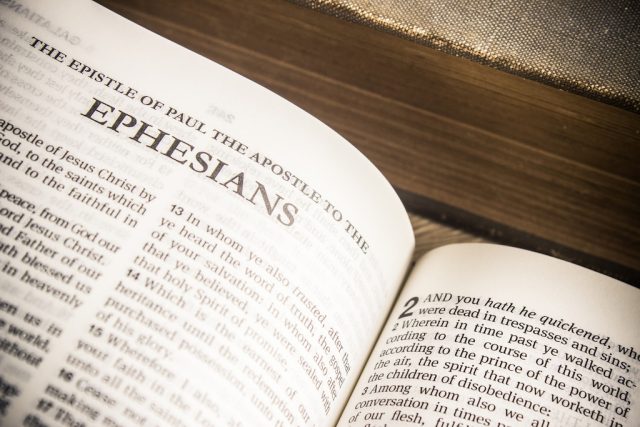Article
Kingdom Character: Suffering, Service, and Sacrifice
We all want to be great in ministry. But greatness in Christ's kingdom comes at a cost. What is it that you desire from Him?

The Big Question
One of the best ways to do a diagnostic on your heart and to consider whether or not you’re growing in kingdom character is by asking yourself the question that Jesus poses twice in Mark 10—once to His disciples, and then to blind Bartimaeus. It’s the question, “What do you want Me to do for you?”
What if Jesus were standing next to you, asking you this same question: “What do you want Me to do for you?” What would your request be? What would be on your heart?
Now, apply that question to your ministry, and Jesus is asking you, “What do you want Me to do for your church, for you as a pastor, or for you as a planter?” How would you respond?
True Greatness
We know how the disciples responded: “Allow us to sit at your right and at your left in your glory” (37). Their request was for greatness. They wanted to be great in the kingdom that Jesus would establish. And the disciples are both right and wrong here. I mean, all disciples ought to desire greatness, right? All disciples should want to please their master. We should all want to be great in God’s kingdom and to do great things for God’s kingdom. But where they went wrong was in their understanding of greatness. And that’s where we go wrong, too.
You see, they wanted to be the most visible, most influential, and most powerful men in the kingdom. And they wanted greatness, but not so much in the eyes of God, but in the eyes of man. And that’s why Jesus had to explain the meaning of true greatness.
The text says, “Jesus called them over and said to them, ‘You know that those who are regarded as rulers of the Gentiles lord it over them, and those in high positions act as tyrants over them. But it is not so among you. On the contrary, whoever wants to become great among you will be your servant, and whoever wants to be first among you will be a slave to all. For even the Son of Man did not come to be served, but to serve, and to give his life as a ransom for many‘” (42-45).
1. Suffering
Now what does this passage teach us about kingdom character? Well, first, true greatness means suffering. Just after the disciples asked to be the greatest in the kingdom, Jesus reminds them that being great means drinking the cup of suffering. You’re picking up your cross and following Jesus.
But carrying a cross isn’t a pleasant experience. Pastoring involves pain. Great pastoring involves great pain. We say we want to be the hands and feet of Jesus. We should remember what happened to the hands and feet of Jesus. And there’s no path to glory that avoids the way of the cross. So, suffering is a part of true greatness in the eyes of God.
2. Service
Secondly, true greatness means service. Be the servant and the slave, Jesus says. And that’s a pretty hard statement to swallow. The disciples were looking for a prominent place to sit. Jesus, however, told them to find a place to serve. The world’s way is to lord your authority over everyone else, but in God’s eyes, servanthood is greatness. Do you realize that for almost all of the leaders in the New Testament, including the ones who wrote the letters and the gospels of the Bible, almost all of them started as actual servants?
I’ve heard pastors use Acts 6 as a means of excusing themselves from tasks like waiting on tables, as if Acts 6 is saying, “Well, the pastor shouldn’t lower himself to serving tables. He must be studying in the Word all week long.” To that, I want to say, “Wait a minute!” The whole implication of Act 6 is that the leaders were such servants that they had to be told to let it go. The spirit of service seeped into their ministry, and they didn’t consider things beneath them. When was the last time someone had to tell you, “Hey, pastor, let me handle that for you.” To use Acts 6 as an excuse to not serve others is a mishandling of the text.
So, to develop kingdom character, think of some tangible ways to remind yourself that you are there to serve. Too many pastors spend more energy trying to impress their high position on others rather than trying to impress their low position on themselves. Here’s the truth: when a man is too big for a little place, he is too little for a big place. The world will estimate your importance by the number of people serving you. But God is more concerned with the number of people you are serving.
3. Sacrifice
And third, greatness in the eyes of God means suffering, service, and sacrifice. Remember how the passage ends: “For even the Son of Man did not come to be served, but to serve, and to give his life as a ransom for many” (45). Jesus came to lay down His life as the ransom for many. That is the ultimate test of greatness in God’s kingdom. The apostle John would later learned this lesson because he’s the one who wrote, “This is how we have come to know love: He laid down his life for us. We should also lay down our lives for our brothers and sisters” (1 John 3:16).
So, I ask you again as a leader: what do you want from God? If you want true greatness, it means you have to be willing to suffer, serve, and sacrifice; that’s what kingdom character requires.
Adapted from “Suffering, Service, and Sacrifice” from the Church Planting Masterclass. Watch this video and more for free by signing up for the Masterclass today.




